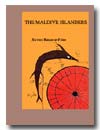 |
|
 |
A right or a violation of rights?
| A dissertation by Shirley Jory (email: jory2616@hotmail.com) 25 December 2005
Synopsis This dissertation examines the Maldivian government’s claim that the Maldives has the right to remain 100% Muslim. It is based on evidence gathered from Maldivian government sources, victims of human rights abuses, reports of human rights- and news agencies, recent cultural research and literature of contemporary Muslim writers. Chapter one introduces the discussion about the universality of the Universal Declaration of Human Rights (UDHR) and relates this to the Maldivian context. Chapter two portrays the Maldivian government’s concerns and position on human rights issues. Chapter three presents the research findings into potential human rights violations mainly of Article 18 but also of Article 19 of the UDHR in the Maldives. Chapter four is a critique of the Maldivian government’s position by using evidence from recent cultural research and contemporary Islamic literature. Chapter five identifies the implications of the findings of this research for the Maldivian context, discusses the validity of cultural relativism in relation to the UDHR and gives personal recommendations for people involved in the reform process in the Maldives and the wider community. Overall this dissertation suggests that the Maldivian claim is not legitimate and that the UDHR is based on a global ethic and therefore universally relevant and applicable to all. Introduction It is generally acknowledged that the United Nations’ (UN) Universal Declaration of Human Rights (UDHR) is a mainly western document dealing with western problems and circumstances. Considering the fact that some of the governments signing the Declaration in 1948 were colonising powers at that time, it is not surprising that the UDHR focuses neither on community rights nor explicitly demands a just economy and labour rights. In the aftermath of the Second World War, the UDHR was mainly concerned with the protection of individuals from oppressive governments, hoping to avoid situations like that of the Third Reich. With this in mind it is understandable that the UDHR has been viewed suspiciously by governments and peoples who have not been directly involved in its making. With the uprising of post-modernity and cultural relativism the ‘universality’ of the UDHR has been questioned not only by people, who felt excluded mainly from the southern hemisphere, but also by others, like western anthropologists. The UN responded to these demands by further elaborating on the UDHR. Since 1948 there have been several more UN agreements on Human Rights. With these agreements the UN created tools that not only protect individuals from oppressive states, but also states from colonial abuse; this means that human rights concepts have become less individualistic and more inclusive. Nevertheless, their universality is still questioned and Kofi Annan, the Secretary General of the UN, acknowledges that the principles of the UDHR are far from being implemented fully in today’s society. He recently stated that “those great documents expressed an optimistic vision, not a description of existing realities.” The editors of the book Culture and Rights identify several tensions between rights and cultures: culture in the UN documents is seen as having clear boundaries and being clearly defined, however anthropologists today see cultures rather as changing and evolving. Another tension is described as ‘rights versus culture’ where rights seem to undermine individual cultures. The opposite is also possible namely when people understand the ‘right to culture’ in ways that put certain cultural habits above universal rights. The editors further point out that the whole human rights scheme or apparatus has become a culture of its own. In order to understand one’s right, or to demand one’s right, one has to know this culture and act according to its rules. Recommendation for Political Reformers in the Maldives The proposed political reforms from June 2004 have been welcomed worldwide. Amnesty International affirms that some steps towards the implementation of these reforms have already been taken but still calls on the government “to ensure that human rights are put at the heart of the reform processes.” The arbitrary arrest and torture of peaceful political protestors in August 2004 caused serious concerns about the sincerity of the political will for reform. Amnesty International and other organisations have offered help in developing and implementing reforms that will safeguard human rights. Recently BBC Radio 4 asked the question whether ‘tsunami relief funds’ should be conditional on a demand for political reform. I am not sure whether this is the right way forward, especially because the people in need are not those that can implement reforms. Moreover the question of religious freedom has not been addressed at all. My concern is that the Maldivian Democratic Party (MDP), being afraid of accusations by religious hardliners, is willing to compromise efforts for the implementation of all human rights. I hope that the people concerned will realise that this is against the ‘innate Spirit’ of their Islamic belief. My hope and recommendation for all the people involved in the reform process in the Maldives is that despite the difficulties, they take the issue of human rights including Articles 18 & 19 seriously and work on a solution based on a global ethic. Table of Contents
|
||||||||||||||||||||||||||||||||||||||||||||||||||||||||||||||||||||||||||||||||||||||||||||||||||||||||||||||||||||||||||||||||
|
|
|
|


 rss feed
rss feed 

